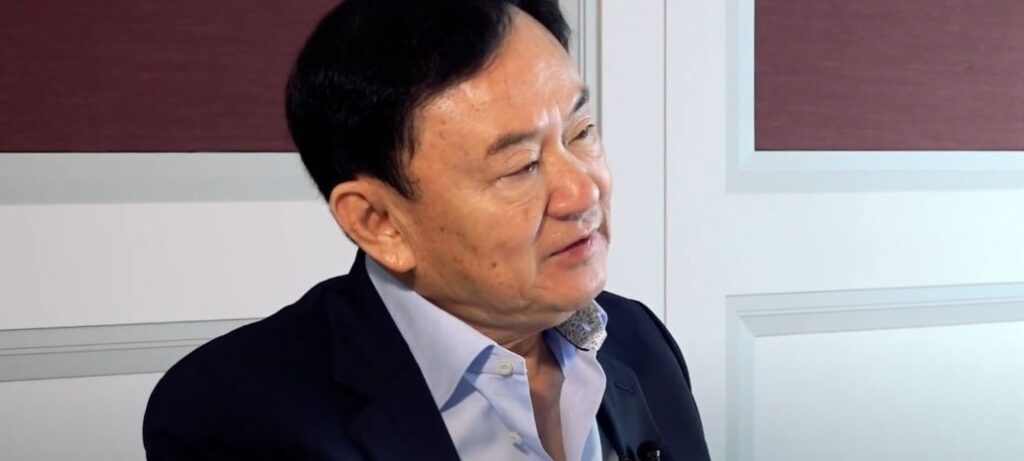More than just a list of figures, Thaksin Shinawatra’s $2.1 billion fortune is the result of strategic risk-taking, exceptionally good timing, and the capacity to handle crises that would have destroyed lesser fortunes. Though not without controversy, his journey from police lieutenant colonel to telecom tycoon has been especially inventive in fusing political strategy with entrepreneurial vision.
When Thailand’s mobile market was just getting started in the 1980s, Thaksin saw a need that others had missed. He put himself in a position to benefit from a communication boom that revolutionized how a country connected by starting Advanced Info Service and growing through Shin Corporation. Because of how effective the move was, he was able to scale infrastructure much more quickly than his rivals.
Bio Data and Professional Information
| Category | Details |
|---|---|
| Full Name | Thaksin Shinawatra |
| Date of Birth | 26 July 1949 |
| Age | 76 |
| Birthplace | San Kamphaeng District, Chiang Mai, Thailand |
| Citizenship | Thailand, Montenegro |
| Net Worth (2025) | $2.1 Billion (Forbes) |
| Occupation | Businessman, Politician, Former Prime Minister |
| Political Party | Pheu Thai Party (formerly Thai Rak Thai) |
| Prime Minister Tenure | 2001 – 2006 |
| Education | M.Sc. in Criminal Justice (Eastern Kentucky University), PhD in Criminology (Sam Houston State University) |
| Known For | Founding Advanced Info Service (AIS) and Shin Corporation |
| Children | Panthongtae, Pintongtha, Paetongtarn Shinawatra |
| Marital Status | Divorced (Potjaman Damapong) |
| Key Assets | SC Asset (Real Estate), Global Investments |
| Reference | Forbes Profile |
He already had a sizable fortune when he entered politics. His populist policies as prime minister from 2001 to 2006, particularly universal healthcare and microloans, were remarkably similar to social reforms in other emerging economies. Voters in rural areas benefited greatly from these policies, which fostered loyalty that persisted even after his removal.
His influence might have completely ended with the 2006 coup. Rather, Thaksin adjusted. He significantly increased the resilience of his portfolio during his 15 years of self-imposed exile by diversifying both geographically and sectorally. His investments became extremely versatile, shielded from Bangkok’s political tremors, ranging from gold and platinum ventures in Africa to London-based health-tech companies like DNANudge.
The preservation of his wealth has been largely dependent on his family. The political ascent of his daughter Paetongtarn and the premiership of his sister Yingluck strengthened the Shinawatra brand as a political and economic force. The main assets, especially SC Asset’s real estate projects, held up remarkably well even after Yingluck left due to legal issues and Paetongtarn was suspended in 2025. Thaksin discovered a class of assets in real estate that provided steady growth, particularly as cities grew.
His dual Montenegrin citizenship is a calculated precaution rather than just a personal decision. It lowers exposure to unilateral asset freezes considerably, facilitates cross-border transactions, and offers tax benefits. This action demonstrates Thaksin’s foresight and is comparable to how other international tycoons, such as Roman Abramovich, used alternative citizenships.
His wealth serves as a stark reminder of Thailand’s wealth disparity. Even though $2.1 billion is a significant sum, it is nothing compared to the Yoovidhya family’s $44.5 billion Red Bull wealth. However, few people in Thai history have successfully merged political leadership, business savvy, and long-lasting public influence like Thaksin.
The way society perceives his wealth is complex. A compelling illustration of how strategic vision can create wealth for future generations is presented to entrepreneurs. However, his path is seen by critics as a warning about the fuzziness of the boundaries between politics and self-interest. Either way, his wealth reflects his ability to adapt; he has adeptly turned setbacks into opportunities, much like he did when he converted a police salary into startup funds for a telecom company.
Thaksin is part of a well-known global trend of leaders who go on to become titans of business who continue to have an impact across national boundaries. His online persona as “Tony Woodsome” allowed him to stay in touch with supporters, demonstrating that exile in the digital age is as much about appearances as it is about location.
His wealth in 2025 is a reflection of a man who has consistently redefined himself, not just of the possessions he possesses. Undeniably resilient, Thaksin Shinawatra’s legacy will continue to influence Thailand’s political and economic course for years to come, from the quiet streets of Chiang Mai to the halls of power, from courtrooms to corporate boardrooms.





1 Comment
I don’t think the title of your article matches the content lol. Just kidding, mainly because I had some doubts after reading the article.